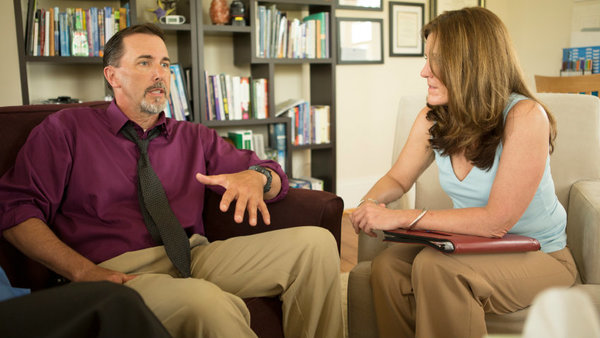Never mind saving, people don’t even plan well for retirement—and that’s when they plan at all.
And that’s despite the fact that many have some serious dreams they intend to live once they leave the workplace.
That’s according to a Marketwatch report, which says that this lack of planning can boobytrap even the dearest of dreams, leaving people to face what could be a nightmare instead—as many as 35 years with little money, little direction and broken, unachievable dreams.
Most people, it says, spend more time planning a vacation than they do planning for retirement.
That leaves a lot of questions unanswered, and a lot of uncertainties—as if there weren’t enough already—to be faced when it might be too late to do anything about them.
Questions people think about when planning a vacation include such diverse issues as where to go, where to stay, how much to spend, whether their medical insurance will cover them during their trip, who’ll take care of pets, who’ll watch out for the house and whether there’s actually enough money in the vacation fund to pay for the trip.
But not only do most people not have enough saved for retirement, they also don’t have a clue how much money they’ll need—and the issue of how to pay for medical care in old age is a big roadblock that is often bypassed when people do give retirement planning any thought.
Instead, starting to plan early—and to do it more as if you were planning for the vacation of a lifetime—can not only steer you in the right direction, it can give you the incentive to save more money, or find ways to make more.
That can ensure that you approach retirement better prepared, and in a better position, to anticipate those additional years with pleasure instead of dread.
|
13. What’s your target retirement date?
If you don’t know the answer to this one, you can’t accurately calculate with any degree of confidence how much money you’ll need, or how long you have to accumulate it. If you go early, say at 62, you’ll need more money than if you keep working and wait till you’re older.
Having to save to cover expenses for as many as 10 or even 20 extra years means you really need to give serious thought to an appropriate retirement date.
|12. What are your exact monthly living expenses?
If you don’t have a handle on what you spend now, how will you know how much you’ll be spending in retirement?
While some expenses will fall or even go away entirely—such as dry cleaning, perhaps, or commuting costs—others could increase (particularly if you decide to go on a world cruise or make frequent trips to visit friends and family).
But you’ll still be on the hook for housing expenses, utilities, food, transportation and medical care, and you might be surprised at how those “fixed” expenses can change once you retire.
If you know what you spend, you can calculate a budget for when you’re no longer drawing a paycheck, and you’ll have a better idea of whether you can actually stick to it.
|11. Do your hobbies and special interests cost you?
If they do, better make sure you put them into your budget, or you’re going to be spending a lot of time either broke or bored.
Of course, you might be able to turn one or more of those special interests into a small business, which could help you meet not only its expenses but some of your others as well. But without a plan in place, how will you know?
|10. How much money do you need to build your cash emergency fund?
If you don’t have an emergency fund at all, that should tell you that it’s time to start one. And even if you do, give some thought to what might arise—repairs on an older car, for instance, or medical bills you might be able to anticipate based on your own or your family’s health history.
Lack of an emergency fund should make you very wary of just plunging into retirement willy-nilly. And before you say you have plenty in your retirement accounts, remember that a cash emergency fund is just that: cash that you can lay your hands on quickly.
If you have to liquidate retirement holdings to pay for an unexpected large bill, like a root canal, a broken refrigerator or a plumbing problem, you could not only lose money on an asset sale at a time that’s not advantageous but also reduce the amount of money on hand in retirement accounts that have to produce enough returns to see you through retirement.
|9. How much Social Security will you get, and when will you start drawing benefits?
If you don’t know what your monthly Social Security benefit will be, how can you plan withdrawal of other retirement funds to make up the amount you need to live on each month?
Also, if you don’t know when to start drawing benefits, or do so while working a part-time job, you could actually lose benefits; earn too much before age 70 and your benefits can be reduced to compensate.
|
8. What’s the final total of all your retirement savings?
If you’re like most people these days, you’ve changed jobs a few times—maybe several—in the course of your career. That might mean that you’ve lost track of one or more retirement accounts at previous employers. You’ll need to track them down and perhaps consolidate them so that you have a better idea of the full balance of your savings.
And then there’s the possibility that your savings have gone down—or up—based on market movement. If you haven’t been paying attention to what’s happening to your retirement contributions, you might end up retiring early than is wise, or even later than is good for your health.
|7. Are you staying in your current home, downsizing or moving to a new location?
If you’re staying put, you might have a pretty good idea of expenses connected with your home. But if you’re downsizing or moving to a new place, you’ll want to get the figures nailed down as quickly as possible—not just on your eventual dwelling, but also on the area’s cost of living, taxes and other expenses.
In addition, moves, whether near or far, take time to execute. Home sales and purchases, as well as dealing with the physical and emotional effects of packing and moving, should be planned out far enough in advance that they won’t cause any undue stress or expense.
|
6. Do you have health issues you need to consider?
This not only plays into how much you have saved toward medical expenses but also where you live and what kind of medical coverage you have or anticipate having.
If you’re moving, you’ll have to line up new doctors and treatment facilities, and that involves eligibility and coverage costs. In addition, the climate of a new potential residence could play a major part in your decision to move or to stay where you are.
|5. Are you planning on doing consulting work once you retire, or turning a hobby into an income-producing activity?
That can make a big difference in how much you have to save, but it could also serve as a cautionary note in case you’re not able to bring in business—or if your health obliges you to stop. If you’re dependent on that income, it could affect your whole retirement.
It could also bring you peace of mind if it’s something you hadn’t considered but find appealing; the extra money from part-time work in retirement could not only make your retirement money last longer, but also keep you healthier and happier from productive activity that makes you interact with others.
|
4. Do you know what required minimum distributions are?
If you don’t, and you have retirement accounts, you’d better find out what RMDs are—because once you turn 70½ they’re mandatory (hence the “required” part) and you’ll have to plan for how they will affect not just your budget but your taxes.
Careful planning on these, in concert with any other income you may have, can help keep your tax bills to a minimum and still provide you with the money you need in retirement.
|3. Do you have a will?
If you don’t, now is probably the time. Otherwise, how will your final wishes be carried out? Whether you have family or want to leave your estate to charity, it won’t happen without a will.
|
2. Do you understand how important a power of attorney can be for both medical and financial issues?
If anything happens to you and you have no significant other to handle health or financial decisions—or if the decisions to be made include end-of-life wishes, such as a desire not to be treated by extraordinary medical measures—you should have a power of attorney for each category and make sure that the person who is designated to execute your wishes is aware of what’s involved.
|1. Do you know that your investment risk profile should be reevaluated once you become a retiree?
Once you’re no longer bringing in regular income from a job, you need that retirement money to last as long as possible.
That means that you should review assets in your retirement accounts to be sure there’s no undue risk.
Complete your profile to continue reading and get FREE access to BenefitsPRO, part of your ALM digital membership.
Your access to unlimited BenefitsPRO content isn’t changing.
Once you are an ALM digital member, you’ll receive:
- Breaking benefits news and analysis, on-site and via our newsletters and custom alerts
- Educational webcasts, white papers, and ebooks from industry thought leaders
- Critical converage of the property casualty insurance and financial advisory markets on our other ALM sites, PropertyCasualty360 and ThinkAdvisor
Already have an account? Sign In Now
© 2024 ALM Global, LLC, All Rights Reserved. Request academic re-use from www.copyright.com. All other uses, submit a request to [email protected]. For more information visit Asset & Logo Licensing.














